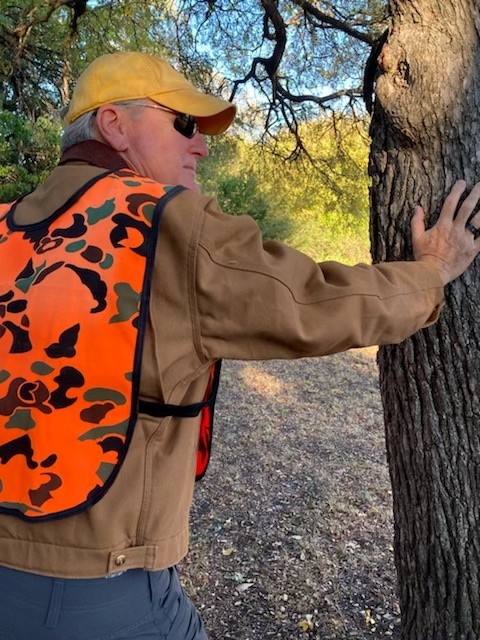Hunting safety should include heart attack and stroke awareness
[ad_1]
 (NewMediaWire) – October 27, 2022 – DALLAS — The crisp fall air is a welcome signal for the beginning of hunting seasons across the country, and while gun safety is an important part of any hunting season, the American Heart Association says heart attacks may be one of the biggest dangers many hunters face.
(NewMediaWire) – October 27, 2022 – DALLAS — The crisp fall air is a welcome signal for the beginning of hunting seasons across the country, and while gun safety is an important part of any hunting season, the American Heart Association says heart attacks may be one of the biggest dangers many hunters face.
“Many people look to hunting as a way to relax and commune with nature and if you’re healthy and in good physical shape, it can be a great way to get some outdoor exercise. However, for many hunters, the extra exertion, colder temperatures and even the excitement of the hunt can add up to a deadly combination,” said Gustavo E. Flores, M.D., a member of the American Heart Association’s Emergency Cardiovascular Care committee and chairman and chief instructor for Emergency & Critical Care Trainings, LLC, in San Juan, Puerto Rico. “Unfortunately, every year some hunters experience heart attacks or strokes while in the woods, so it’s important to recognize symptoms and to be able to take quick action.”
According to Flores, developing an exercise regimen and getting a good health check-up prior to hunting season would be idea. However, many hunters may not think ahead to prepare physically for the exertion hunting can have on the body – especially the heart. The colder temperatures of hunting season can cause blood vessels to constrict. Tracking prey may mean lots of walking or running, often in hilly terrain. The excitement of seeing and connecting with a target can release hormones that can increase blood pressure to cause the heart rate to spike. Then the labor of dragging an animal through the woods can leave even the most fit hunter breathless.
“Heart attacks and strokes can happen even to people who seem in good physical shape,” Flores said. “Listen to your body, take breaks if needed and have a plan in case of emergencies. Never hunt alone if possible and if cell phone service isn’t available, use walkie-talkies to stay in touch with your hunting party. Recognizing the warnings signs and seeking immediate help are key.”
Some heart attacks are sudden and intense. But most start slowly, with mild pain or discomfort. Pay attention to your body and call 911 if you experience:
- Chest discomfort. Most heart attacks involve discomfort in the center of the chest that lasts more than a few minutes – or it may go away and then return. It can feel like uncomfortable pressure, squeezing, fullness or pain.
- Discomfort in other areas of the upper body. Symptoms can include pain or discomfort in one or both arms, the back, neck, jaw or stomach.
- Shortness of breath. This can occur with or without chest discomfort.
- Other signs. Other possible signs include breaking out in a cold sweat, nausea or lightheadedness.
Use the letters in F.A.S.T to spot a stroke
- F = Face Drooping – Does one side of the face droop or is it numb? Ask the person to smile. Is the person’s smile uneven?
- A = Arm Weakness – Is one arm weak or numb? Ask the person to raise both arms. Does one arm drift downward?
- S = Speech Difficulty – Is speech slurred?
- T = Time to call 911
- Other signs can include: numbness or weakness of face, arm, or leg, especially on one side of the body; confusion, trouble speaking or understanding speech; trouble seeing in one or both eyes; trouble walking, dizziness, loss of balance or coordination; or a severe headache with no known cause
Getting a person to the hospital quickly during a heart attack or stroke is critical to ensure they get medication and treatment to save their life. If calling 9-1-1 isn’t an option in the woods, it can also help to know in advance where the closest hospital is to the hunting area.
Cardiac arrest differs from a heart attack because the heart suddenly stops beating, often without any warning. Signs of a cardiac arrest are:
- Sudden loss of responsiveness – The person doesn’t respond, even if you tap them hard on the shoulders or ask loudly if they’re OK. The person doesn’t move, speak, blink or otherwise react.
- No normal breathing – The person isn’t breathing or is only gasping for air.
In the event of a cardiac arrest, seconds count. Call 9-1-1, begin CPR immediately and continue until professional emergency medical services arrive.
“Learning hands-only CPR is one of the best skills any hunter can have. The American Heart Association offers many local CPR classes, and even if you haven’t taken a formal class, you can still save a life. It’s two simple steps – call 9-1-1 and push hard and fast in the center of the chest,” Flores said. “While hunting can be a very strenuous activity, taking a few precautions and being prepared can make a difference in the safety of the experience.”
Learn more about heart attacks and strokes, along with preventive health tips at heart.org.
Additional Resources:
About the American Heart Association
The American Heart Association is a relentless force for a world of longer, healthier lives. We are dedicated to ensuring equitable health in all communities. Through collaboration with numerous organizations, and powered by millions of volunteers, we fund innovative research, advocate for the public’s health and share lifesaving resources. The Dallas-based organization has been a leading source of health information for nearly a century. Connect with us on heart.org, Facebook, Twitter or by calling 1-800-AHA-USA1.
###
For Media Inquiries and AHA/ASA Expert Perspective: 214-706-1173
Cathy Lewis: 214-706-1324, cathy.lewis@heart.org
For Public Inquiries: 1-800-AHA-USA1 (242-8721)
heart.org and stroke.org
[ad_2]




